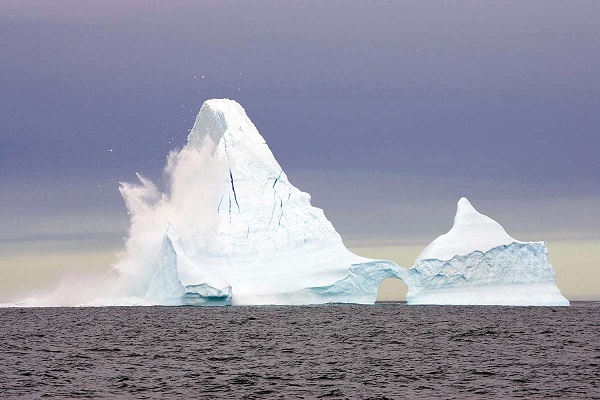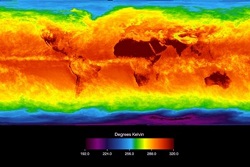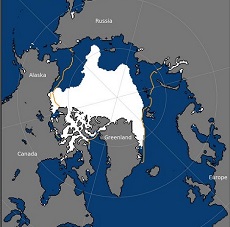In 1999 NASA lost its $125-million Mars Climate Orbiter because spacecraft engineers failed to convert from Imperial to metric measurements when exchanging vital data before the craft was launched. Numbers are important!
When Michael Le Page attempts to sort out the numbers in climate science (probably pay-walled) it’s not as straight forward as you might think. For starters we are given this image:

Sorry, when floating ice melts the sea level does not rise. The caption is misleading. Continue reading Climate change by the numbers


 Arctic summer sea ice minimum was the
Arctic summer sea ice minimum was the 

